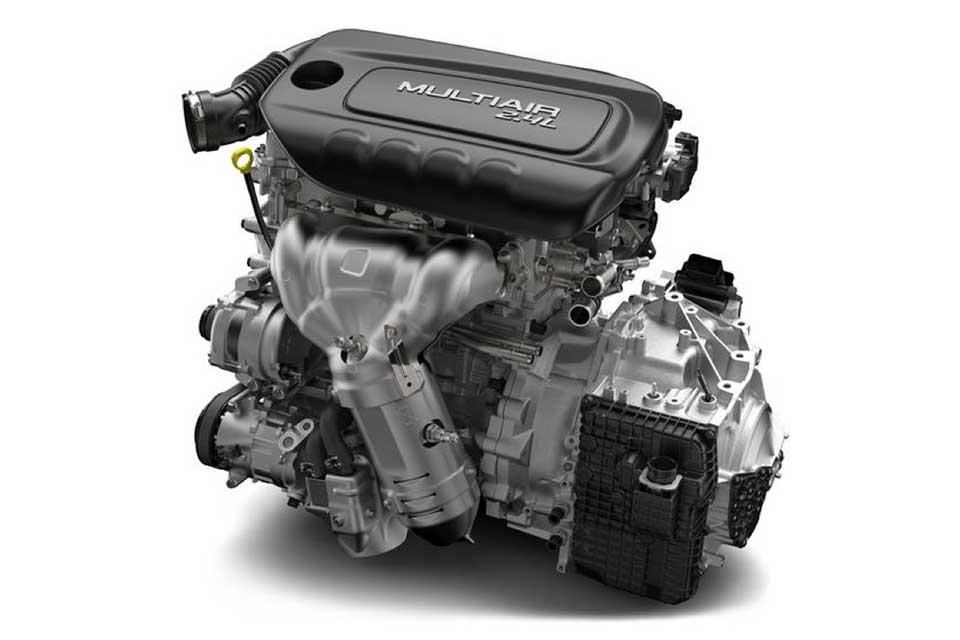Oil Consumption Defect Causes the 2.4L Tigershark Engine to Stall
- The 2.4L Tigershark engine consumes a quart of oil every 1,000 miles.
- Defective control rings allow oil to sneak past into the combustion chamber.
- The automaker has been sued after maintaining their stance that this level of consumption is "normal."

This post originally appeared on jeepproblems.com
Dodge Dart owners say the 2.4L Tigershark engine consumes a quart of oil every 1,000 miles. Engines that consume a ton of oil are inefficient, irritating, and expensive. But it turns dangerous when the oil indicator system doesn't even alert you when oil levels are low.
The engine has a oil capacity of 5.5 quarts, and if the oil level falls to 3.5 quarts or lower the engine will stall without the oil indicator light kicking on.
In fact, some owners say the light only turns on once the engine has stalled. That's a bit like your bank telling you to check your spending after you've overdrawn your account by $10,000.
Design Defect Burns Off Oil ∞
Control rings at the top of the piston sidewalls are there to prevent oil from entering the combustion chamber.
But a defect in the Tigershark engine means the piston rings don't work correctly with the cylinders. This allows oil to seep past and burn off in the compression cycle.
As the engine loses oil, excess heat and friction will prematurely wear down internal components. At first the engine might stall out. But eventually it'll seize up and fail.
Stellantis' new normal? ∞
Stellantis (formerly Fiat-Chrysler) has been accused of knowing about the problem since 2015 but telling owners the consumption levels are "normal" to avoid a recall.
According to the owner's manual the oil should be changed at 4,000 miles (6,500 km)
under normal driving conditions. Even under severe Operating Conditions
the manual says the oil message will illuminate as early as 3,500 miles since the last reset.
But owners say the engine consumer a quart every 1,000 miles. So if you follow the recommended interval, you'll cause irreversible damage to the engine.
Affected Models ∞
The 2.4L Tigershark MultiAir II can be found in the following Stellantis models.
| Make | Model | Generation |
|---|---|---|
| Chryler | 200 | Gen 2 (2015-2016) |
| Dodge | Dart | Gen 1 (2013-2016) |
| Jeep | Cherokee | Gen 5 (2014-2020) |
| Compass | Gen 2 (2017-2020) | |
| Renegade | Gen 1 (2015-2020) |
Lawsuits Regarding This Problem
Lawsuits about this problem have already been filed in court. Many times these are class-action suits that look to cover a group of owners in a particular area. Click on the lawsuit for more information and to see if you're eligible to receive any potential settlements.
Gizzarelli, et al., v. FCA US LLC
Case Filed
A Chrysler oil consumption lawsuit alleges these Chrysler, Dodge, Fiat and Jeep vehicles stall while driving because the 2.4L Tigershark engines have piston rings that don't work properly with the cylinders.
Generations Where This Problem Has Been Reported
This problem has popped up in the following Dodge generations.
Most years within a generation share the same parts and manufacturing process. You can also expect them to share the same problems. So while it may not be a problem in every year yet, it's worth looking out for.
1st Generation Dart
- Years
- 2013–2016
- Reliability
- 50th out of 54
- PainRank™
- 29.8
- Complaints
- 598